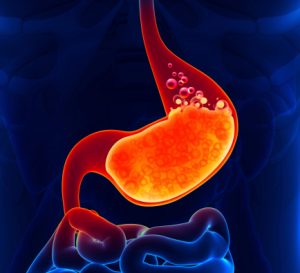 A burning stomach, or a burning sensation in the stomach, can cause pain, fatigue, and stress to the stomach. Burning stomach is becoming a growing and common problem as a result of indigestible food, health problems, infections, overuse of antibiotics, and chlorinated water, to name a few causes.
A burning stomach, or a burning sensation in the stomach, can cause pain, fatigue, and stress to the stomach. Burning stomach is becoming a growing and common problem as a result of indigestible food, health problems, infections, overuse of antibiotics, and chlorinated water, to name a few causes.
The stomach is a muscular sack between the esophagus and small intestine. The stomach is responsible for digesting food before it enters the intestines to be broken down further. If food is not properly broken down in the stomach, it can cause a clog along the intestines, resulting in indigestion or heartburn.
Advertisement
The stomach breaks down food with enzymes and acids. The food is mixed with water and gastric juices to break down into what is known as chyme. Chyme then moves into the intestines and breaks down further until it exits the colon.
Causes of burning sensation in stomach
There are many reasons aside from the listed above that can contribute to a burning sensation in the stomach. Here are 20 of the most common causes of burning sensation in the stomach to help you narrow down which one could be causing you discomfort.
Gastritis
Gastritis is the irritation, damage, and inflammation of the stomach lining. Common symptoms of gastritis include burning sensation after a meal or when lying down, nausea, bloating, indigestion, abdominal pain, hiccups, and loss of appetite.
Gastroesophageal reflux disease (GERD)
GERD is a condition in which the lower portion of the esophagus sphincter opens inappropriately or does not close fully, allowing for stomach acids to come up into the esophagus. Risk factors of GERD include obesity, pregnancy, smoking, and acidic products like citrus or tomato-based foods.
Food allergies or intolerances
Burning sensation in the stomach and chest can result from a food allergy or intolerance. This burning sensation can also occur after eating. When a person consumes food they cannot tolerate or are allergic to, they may also experience nausea and vomiting. Your doctor will then conduct an allergy test to narrow down which foods are your triggers.
Medications or drugs
Certain medications and drugs can break down the protective layer of your stomach. This breakdown can increase a person’s risk for gastritis.
Emotional stress
Many digestive issues stem from poorly managed emotional stress. Stress can slow down the digestive process, leaving stomach acids within the stomach thus increasing the risk of reflux. A health interview or mental health evaluation can help diagnose emotional stress. Your doctor can offer treatments based on your condition.
Irritable bowel syndrome (IBS)
IBS is caused by the malfunction of nerves that control intestinal function and perception. Symptoms of IBS include nausea, bloating, diarrhea, constipation, and cramping. A large contributing factor to IBS is stress, so once again properly managing emotional state is highly important for treating IBS.
Ulcers
Ulcers are sores that develop in the stomach or duodenal lining. A common treatment method for ulcers is to target the bacteria causing the condition – the most common being H. pylori.
Celiac disease
Celiac disease is intolerance to gluten. The body’s immune system identifies gluten as a harmful agent and attacks it as a threat. This can result in uncomfortable symptoms and discomfort. An easy solution for celiac disease is avoiding gluten in your diet at all costs. If celiac disease is not treated, it can result in damage along the intestines, which hinders their ability to absorb nutrients thus causing malnutrition.
H. pylori
As mentioned, H. pylori is a common cause of ulcers, but on its own it can cause a burning sensation within the stomach. Over time, H. pylori breaks down the protective layers of the stomach, but the good news is, your doctor can prescribe medications to cure it.
Excessive stomach acid
Too much of stomach acid can contribute to a burning stomach. Some over-the-counter medications can help relieve a burning sensation brought on by excessive stomach acid. If severe enough, your doctor may prescribe medication.
Other notable causes of burning stomach
Herpes zoster, eczema, psoriasis, alcohol abuse, inflammation, smoking, obesity, abdominal muscles after exercise, hiatal hernia, and pain from the kidneys or liver.
Herpes on stomach
Herpes zoster virus is the same infection that leads to the development of chicken pox and shingles. The virus often leads to the formation of painful blisters which can affect any part of the body but predominately affect the back, chest, stomach, face, and neck.
Psoriasis
Psoriasis is a common skin disorder that affects the life cycle of skin cells. It results in cells building up rapidly on the surface, giving it the appearance of being thick, having silvery scales, and being excessively dry with red patches. It can also cause agonizing pain to those affected. Psoriasis is considered a chronic autoimmune disorder, which generally means the body’s own immune system is attacking itself, and in this case the skin cells.
Smoking
Smoking is not only hazardous to your lungs it is also very harmful to your entire digestive system. Smokers suffer from a host of negative side effects some smoking every day, which include excess phlegm, chronic coughing, and a bad smell. This also extends to the increased risk of heartburn, ulcers, and cancer.
Stomach inflammation
Inflammation of the stomach often leads to symptoms of nausea, vomiting, abdominal bloating, indigestion, a burning feeling in the stomach, loss of appetite, abdominal pain, and the possibility of a burning or gnawing feeling in the stomach between meals or at night.
Abdominal muscles after exercise
Abdominal muscle injury often leads to symptoms of pain, swelling, and a burning sensation. Injury is most likely to occur to beginners who perform far too much then their body is capable of handling, however, abdominally muscle injury can occur at any fitness level. Regardless of your level of fitness, it is recommended to begin any new exercise problem slowly.
Hiatal hernia
Characterized by contents of the abdominal cavity, such as the stomach or intestines, protruding upwards into the thoracic cavity, through the esophageal opening in the diaphragm called the esophageal hiatus. Hiatal hernias commonly occur in the older population (60+) but can be seen in younger patients who smoke, perform frequent heavy lifting, or are obese. Symptom often includes chest pain, difficulty swallowing, heartburn, upper abdominal pain, and frequent hiccups.
As you can see, the causes for burning stomach sensation are numerous and diverse, but many of them are treated very easily. In order to obtain relief from your burning sensation –be in the lower abdomen, after eating, or as a result of pregnancy – speak to your doctor so they can run proper testing to narrow in on your specific cause.
Related: Stomach bloated? Try these 10 tips…
Burning sensation in stomach signs and symptoms
 Regardless of the cause of your burning stomach sensation, there are some common symptoms to look out for. Signs and symptoms of stomach pain include a burning sensation or discomfort in the upper abdomen or lower chest, bloating, belching, early feeling of fullness when eating, and nausea.
Regardless of the cause of your burning stomach sensation, there are some common symptoms to look out for. Signs and symptoms of stomach pain include a burning sensation or discomfort in the upper abdomen or lower chest, bloating, belching, early feeling of fullness when eating, and nausea.
The following symptoms indicate there is a very serious cause of your burning sensation and should prompt you to see your doctor immediately. These symptoms include bloody vomit, dark and tarry stool, shortness of breath, and pain that radiates from the jaw, neck, or shoulder.
Burning sensation in stomach after eating
For many individuals who experience a burning sensation in the stomach, this usually happens after eating a meal. Spicy food is usually to blame.
There are a few reasons why spicy food triggers a burning sensation in the stomach. For starters, spicy food increases the risk of indigestion, which may feel like a heavy feeling in the stomach after eating, belching, gas, and pain.
Additionally, spicy food contains capsaicin, which can irritate the stomach lining thus causing a burning sensation.
Other factors can contribute to a burning stomach after eating, too. These include foods high in soluble fiber, low fiber meals, lactose intolerance or food allergies, fructose malabsorption, and side effects of olestra (a fat substitute added to foods like chips).
Some products can also aggravate existing ulcers, mainly spicy foods. In order to narrow down the specific food triggers of your burning stomach, keep a food diary for some time and document how you feel after each meal.
Related: Stomach Bloating After Eating: Causes and Treatment
Burning sensation in stomach after drinking
There are many different beverages that can cause burning sensation of the stomach – water included. Here are some notable examples – and what you can do about it.
Stomach burning after drinking alcohol
Like food, drinking alcohol can cause a burning sensation in the stomach, too. Burning sensation after alcohol is often a result of binge drinking. Chronic alcohol consumption can change the structure and function of the gastrointestinal tract, causing a stomach ache after drinking alcohol.
Alcohol causes a burning stomach because the chemicals in alcohol are rapidly metabolized in the body. When this occurs, a reactive oxygen species cause oxidative stress to the cells and tissues along the gastrointestinal tract.
Possible causes of stomach pain after drinking alcohol include:
- Binge drinking
- Shrinking of the gastric lining due to alcoholism
- Chronic alcohol consumption
- Inflammation of the pancreas due to alcohol consumption
- Gallbladder disease triggered by the alcohol
- Liver damage resulting from alcohol consumption
Stomach burning after drinking soda
 Soda is a bubbly beverage, so right off the bat, drinking carbonated beverages can increase gas, which can contribute to stomach burning. Many soda varieties also contain aspartame, an artificial sweetener. Although this type of sweetener can reduce calorie count in your beverage, many people are intolerant to aspartame, which can also add to burning stomach.
Soda is a bubbly beverage, so right off the bat, drinking carbonated beverages can increase gas, which can contribute to stomach burning. Many soda varieties also contain aspartame, an artificial sweetener. Although this type of sweetener can reduce calorie count in your beverage, many people are intolerant to aspartame, which can also add to burning stomach.
If you have been diagnosed with IBS, soda can further lead to stomach irritations and promote diarrhea as well.
Stomach burning after drinking water
Water is known to be the number one health beverage you can consume, but it can lead to burning sensation in the stomach, too. Drinking too much water can lead to a condition known as hyponatremia, which is characterized by abnormally low sodium levels. The main symptoms of hyponatremia are discomfort, vomiting, confusion, fatigue, and even convulsions.
Consuming too much water can also negatively impact the kidneys. Our kidneys are able to filter through 1,000 ml of water an hour. Drinking more than this amount can overwork your kidneys, and if you have kidney disease you are at an even greater risk of complications of excessive water intake.
Stomach burning after drinking milk
A common reason for stomach burning after drinking milk is lactose intolerance. Lactose intolerance is a condition in which your body doesn’t have the right enzymes to break down lactose, a type of sugar found in milk. Because your body is unable to break down lactose, it can have negative side effects including abdominal pain, constipation, diarrhea, and burning stomach.
Once again, if you have IBS, you may notice an increase in burning stomach after consuming dairy. Overall, dairy is a common and known irritant in IBS, and it is often recommended that IBS patients reduce their intake of dairy – especially if they are lactose intolerant.
Related: Ultra Sensitive Stomach: Foods to eat and avoid
Home remedies for burning sensation in stomach
Knowing the underlying cause of your burning stomach can help you narrow in on a specific treatment method. In addition to your treatment plan, there are home remedies you can try to further aid with your symptoms and reduce burning sensation in your stomach. Here are some home remedies for burning sensation in stomach you can pair with your current treatment plan for additional relief.
- Thyme tea: Thyme steeped into a tea can help with gas, reduce the swelling of the mucosal lining, and alleviate the pain associated with burning stomach.
- Plain foods: Bland foods can help neutralize stomach acids and are easier to digest, so that your stomach doesn’t have to work as hard to break them down. Bland foods include boiled vegetables, rice, applesauce, and basically anything with minimal spices or oil added.
- Yogurt/buttermilk: Unless you are lactose intolerant, consuming yogurt or buttermilk can help alleviate burning stomach. Yogurt or buttermilk can help ease the pain associated with a burning stomach and can be enjoyed twice daily.
- Honey: Honey has been found to help treat stomach ulcers, lesions on the intestines, and other stomach-related problems.
- Soothing fruits: Fruits like bananas and watermelon not only soothe the burning sensation, but can also aid in case of heartburn.
- Coconut water: Coconut water can help soothe intestine inflammation and provide you with energy and a cooling sensation.
- Apple cider vinegar: Although apple cider vinegar is potent, it can actually help relieve burning as it contains many antifungal, antibacterial, and anti-inflammatory properties. Make sure you dilute apple cider vinegar with some water as the taste is quite strong.
- Aloe vera juice: Aloe vera isn’t just for external burns, it can help cool and heal internal ones, too, as long as you drink the juice. Like apple cider vinegar, it contains antifungal, antibacterial, and anti-inflammatory properties.
- Baking soda: Baking soda helps lower the natural stomach acids, which can contribute to burning. Mix baking soda with water and consume before and after meals to reduce burning stomach.
- Broccoli: Research suggests that regular consumption of this popular superfood can help reduce the risk of stomach ulcers and even stomach cancer
Giving these home remedies a go can offer you an instant and easy relief from your burning stomach.
Related: 20 home remedies for upset stomach (dyspepsia)
Tips to prevent pain in burning stomach
 A burning feeling in the stomach is often paired with pain, which can be quite debilitating. Here are some tips to help you better prevent burning stomach pain.
A burning feeling in the stomach is often paired with pain, which can be quite debilitating. Here are some tips to help you better prevent burning stomach pain.
- Don’t suppress belching, as burning stomach may be alleviated through burping.
- Avoid spicy and oily foods.
- Eat more complex carbohydrates like whole grains.
- Don’t smoke.
- Limit alcohol.
- Check your medications for possible side effects of burning stomach.
- Don’t skip meals.
- Exercise daily for at least 30 minutes.
- Consume plenty of leafy greens, vegetables, fruits, but be mindful of citrus fruits.
- Drink milk, but not on an empty stomach as that can cause further irritation.
Related: Stomach gurgling causes, symptoms, and home remedies
Treatment options for burning sensation in stomach
As mentioned, your doctor can prescribe you medications to treat the underlying cause of your burning stomach. Some products that can work are over-the-counter antacids and stool softeners, but the latter should not be used for prolonged period of times.
Painkillers can also be helpful, unless they are the original cause of your burning stomach. Painkillers like aspirin, Advil, and Aleve can interfere with digestion further, which can worsen the problem.
Lastly, antibiotics should only be used with doctor’s supervision and instruction. Some antibiotics can contribute to burning stomach, so your doctor must be made aware of any burning stomach symptoms that may be related to your medication. Antibiotics are useful if there is a bacterial cause of burning stomach – like H. pylori.
Advertisement
By combining medical treatments with home remedies, you can experience greater relief from your burning sensation in stomach.
Having a burning sensation in the stomach is never a pleasant experience. While most cases tend to resolve on their own, other cases may not be so simple. If you are currently experiencing burning pain in the stomach that has not resolve over a significant period of time or you begin to have additional symptoms outlined in this article, speaking to your local doctor will not only help you identify a potential cause but also find the best treatment currently available for your unique situation.
Related: Even if your stomach feels fine you still could have a problem
